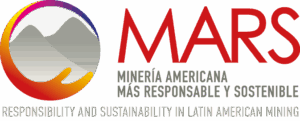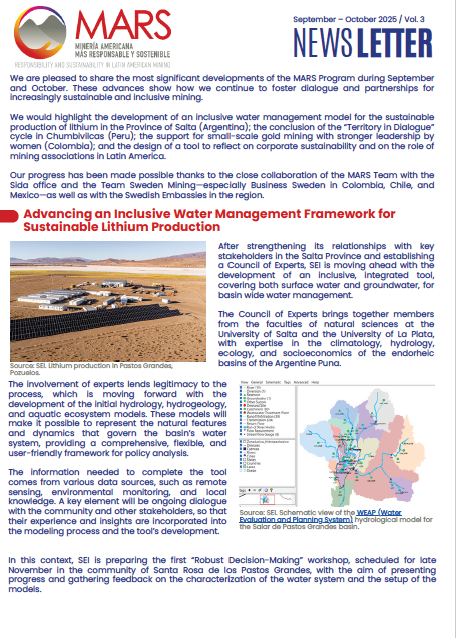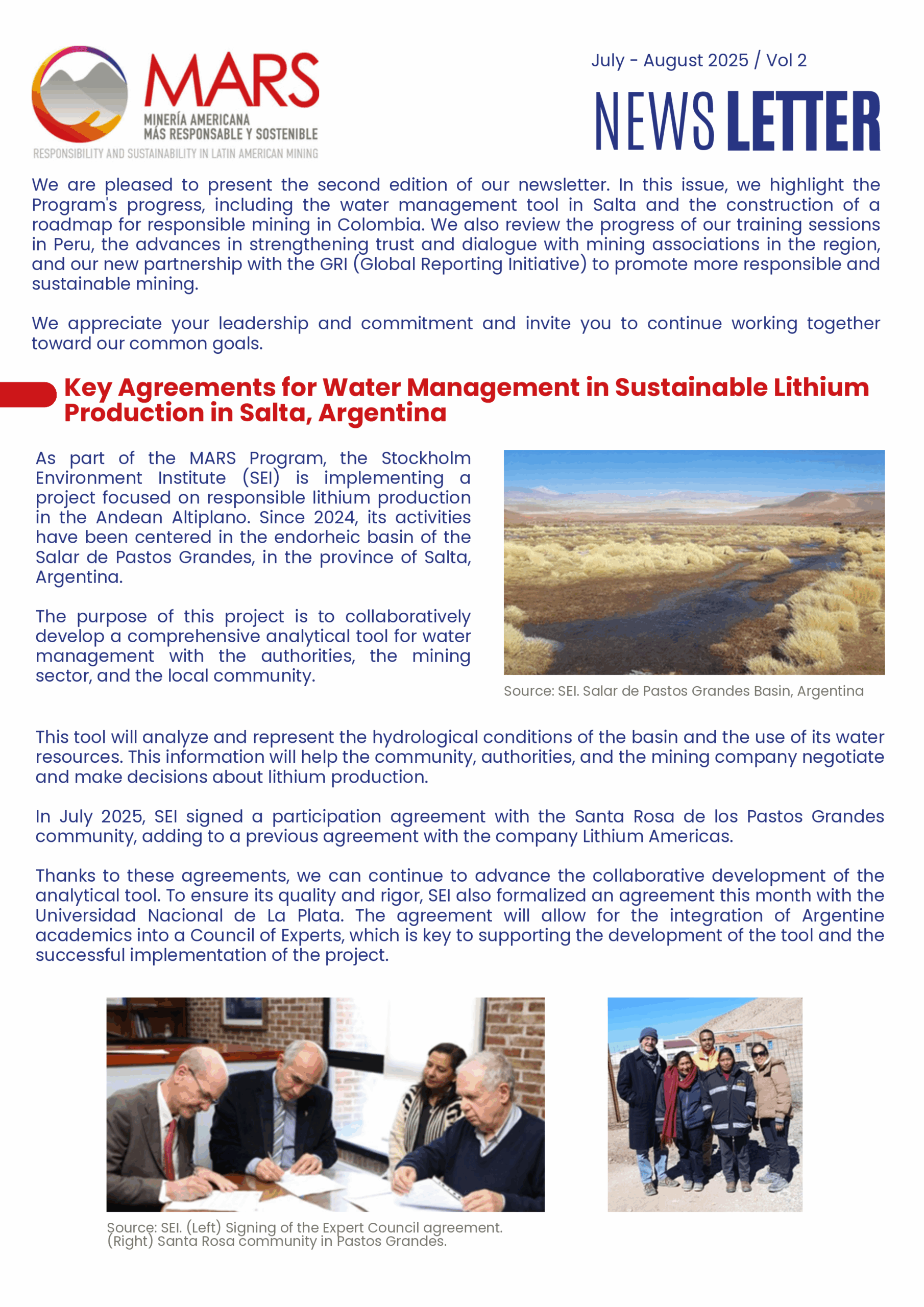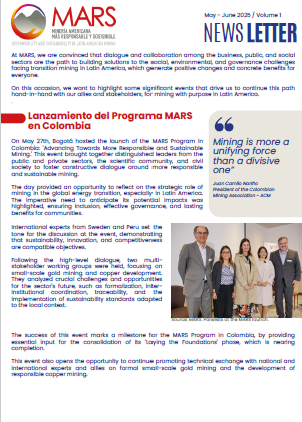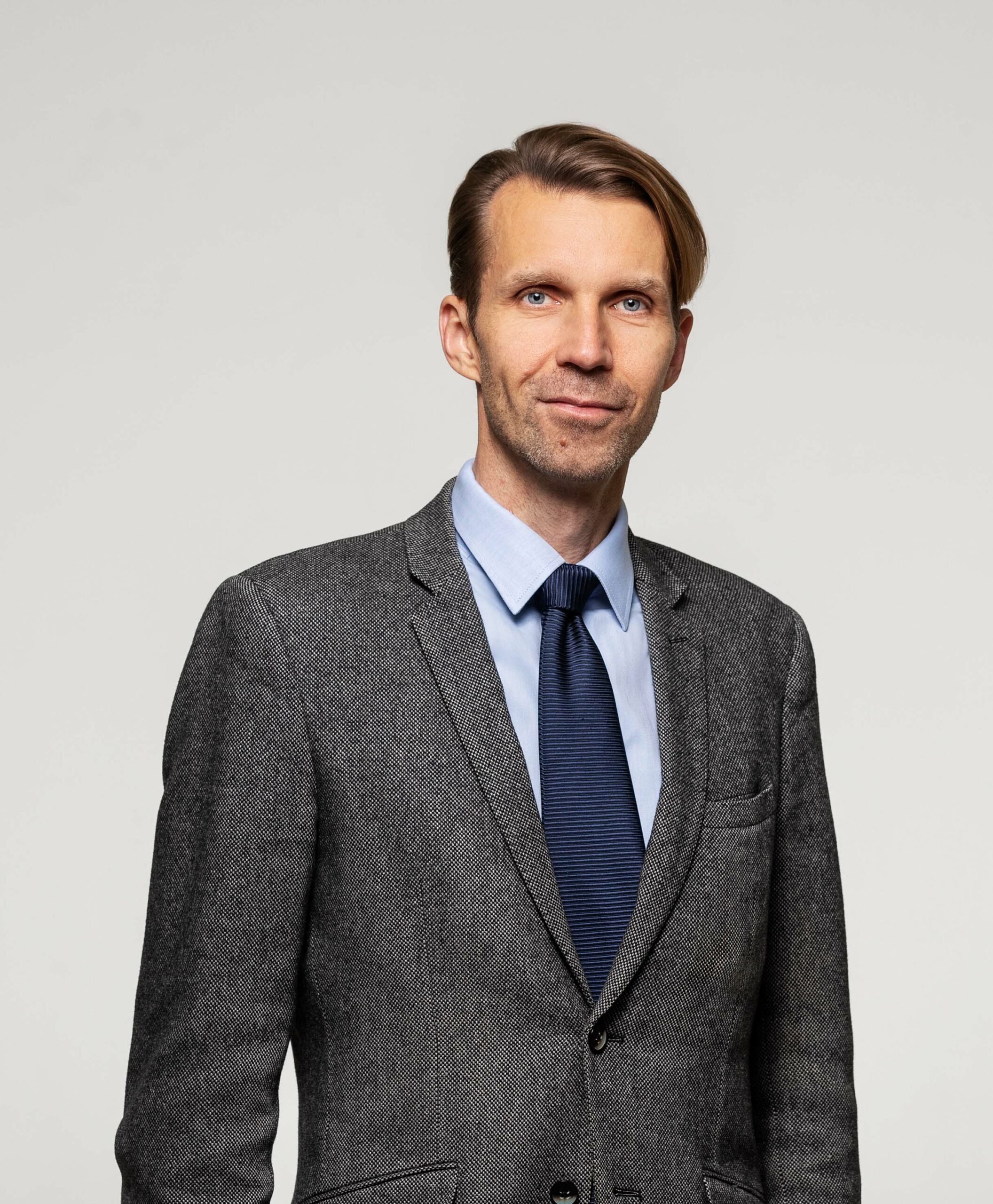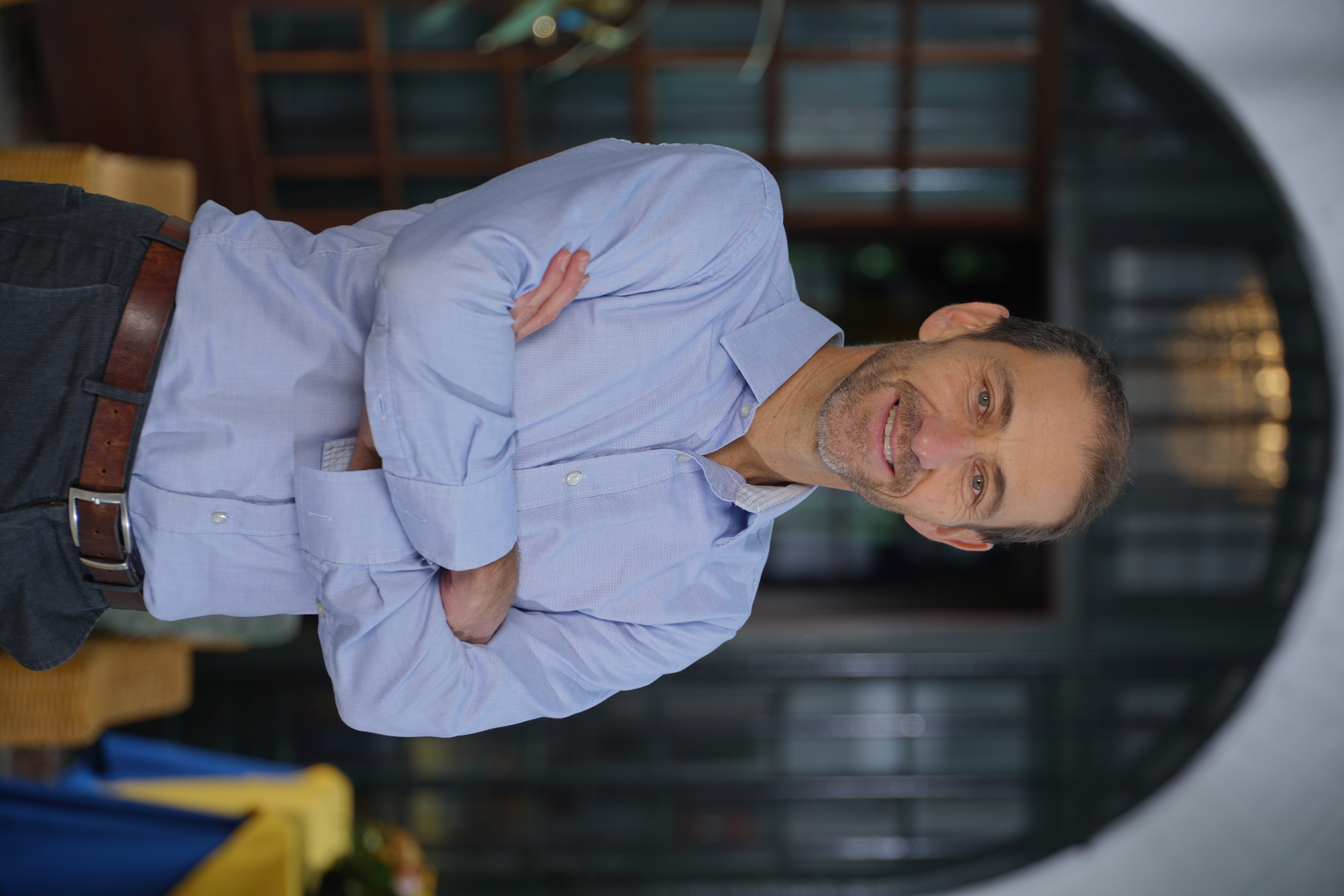NEWSLETTER
July - August 2025 / Volume 2
We are pleased to present the second edition of our newsletter. In this issue, we highlight progress, including the water management tool in Salta and the construction of a roadmap for responsible mining in Colombia. We also review the progress of our training sessions in Peru, the advances in strengthening trust and dialogue with mining associations in the region, and our new partnership with the GRI (Global Reporting Initiative) to promote more responsible and sustainable mining.
Salta, Argentina
Key Agreements for Water Management in Sustainable Lithium Production
As part of the MARS Program, the Stockholm Environment Institute (SEI) is implementing a project focused on responsible lithium production in the Andean Altiplano. Since 2024, its activities have been centered in the endorheic basin of the Salar de Pastos Grandes, in the province of Salta, Argentina.
The purpose of this project is to collaboratively develop a comprehensive analytical tool for water management with the authorities, the mining sector, and the local community.
This tool will analyze and represent the hydrological conditions of the basin and the use of its water resources. This information will help the community, authorities, and the mining company negotiate and make decisions about lithium production.
In July 2025, SEI signed a participation agreement with the Santa Rosa de los Pastos Grandes community, adding to a previous agreement with the company Lithium Americas.
Thanks to these agreements, we can continue to advance the collaborative development of the analytical tool. To ensure its quality and rigor, SEI also formalized an agreement this month with the Universidad Nacional de La Plata. The agreement will allow for the integration of Argentine academics into a Council of Experts, which is key to supporting the development of the tool and the successful implementation of the project.
Signing of the Expert Council agreement. Santa Rosa community in Pastos Grandes & Salar de Pastos Grandes Basin, Argentina. Source: SEI
Colombia
Towards a Common Understanding of Responsible Gold and Copper Mining in Colombia
Formal Small-Scale Gold Mining
On July 28, a visit was made to the lquira Agromining Cooperative in southern Colombia, internationally recognized for its responsible mining practices. The objective was to facilitate an exchange of experiences with its members.
Small-scale miners from different regions of the country and representatives from the cooperative participated in the event. The meeting, facilitated by the Alliance for Responsible Mining (ARM), was also attended by leaders from the Swedish International Development Cooperation Agency ( SIDA), the Chamber of Small-Scale Mining (ACM), the Ministry of Mines and Energy, and the National Mining Agency (ANM).
During the visit, key bottlenecks and opportunities for the sector were identified. Among the most highlighted aspects were the importance of building trust to facilitate access to investment capital, the diversification of the local economy, and the need to develop a regulatory and governance framework tailored to the unique characteristics of the region.
The results of this visit will be included in the recommendations of the characterization study, which will be published at the end of 2025. The project will continue to work on creating favorable environments for the development of formal small-scale mining in Colombia.
Responsible Copper Mining
As part of our work on responsible copper mining, we participated in several exchange forums. These included the “Mining Transitions: Responsible Entries and Exits” forum, co-organized in Bogota on August 6, 2025, with CREER, the Colombian Mining Association (ACM), and MARS, and supported by the Ford Foundation; and our participation in the “ACM National Mining Congress,” held on August 28 and 29, 2025, in Cartagena.
These meetings provide relevant information for the baseline study being developed by the project, helping to deepen our understanding of this mining sector in the current context. The study’s results will guide the dialogue and training actions necessary to facilitate the construction of a shared vision among stakeholders to make responsible and purposeful copper mining a reality.
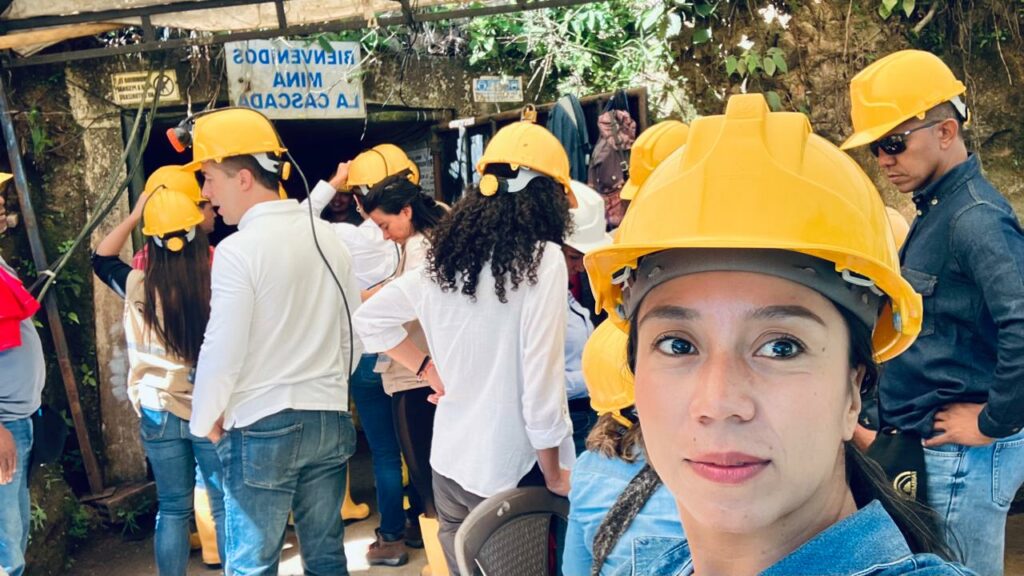
Field visit. lquira mines, Huila, Colombia. Source: ARM. Central square, municipality of lquira, Huila, Colombia. Source: Wikimedia Commons.
“It is necessary to enhance the mining and productive vocation that has always been present by tradition in the communities and territories”
Representative of Coomisanjuan, Itsmina, Chocó,
Colombia
Chumbivilcas, Peru
Territory in Dialogue: Capacities for Sustainable Development in Peru
On May 27th, Bogotá hosted the launch of the MARS Program in Colombia: ‘Advancing Towards More Responsible and Sustainable Mining.’ This event brought together leaders from the public and private sectors, the scientific community, and civil society to foster constructive dialogue around more responsible and sustainable mining.
The day provided an opportunity to reflect on the strategic role of mining in the global energy transition, especially in Latin America. The imperative need to anticipate its potential impacts was highlighted, ensuring inclusion, effective governance, and lasting benefits for communities. At MARS, we are convinced that dialogue and collaboration among the business, public, and social sectors are the path to building solutions to the social, environmental, and governance challenges facing transition mining in Latin America, which generate positive changes and concrete benefits for everyone. On this occasion, we want to highlight some significant events that drive us to continue this path hand-in-hand with our allies and stakeholders, for mining with purpose in Latin America. ‘
International experts from Sweden and Peru set the tone for the discussion at the event, demonstrating that sustainability, innovation, and competitiveness are compatible objectives.
Following the high-level dialogue, two multistakeholder working groups were held, focusing on small-scale gold mining and copper development. They analyzed crucial challenges and opportunities for the sector’s future, such as formalization, interinstitutional coordination, traceability, and the implementation of sustainability standards adapted to the local context.
The success of this event marks a milestone for the MARS Program in Colombia, by providing essential input for the consolidation of its ‘Laying the Foundations’ phase, which is nearing completion. This event also opens the opportunity to continue promoting technical exchange with national and international experts and allies on formal small-scale gold mining and the development of responsible copper mining.
Regional Development
Strengthening Ties and Practices Through Dialogue Between Latin American Mining Associations
In this period, we advanced our initiative to promote peer-to-peer exchanges of experiences and visions, along with training sessions and other activities. Collectively, these are designed to strengthen the region’s competitiveness and position by raising the mining industry’s standards for Responsible Business Conduct.
The first session in this series featured Carlos Urenda, CEO of the Chilean Mining Council, who shared his organization’s maturity journey, highlighting both their achievements and the challenges they faced. In the second session, Carolina Gutierrez, Sustainability Director of the Colombian Mining Association (ACM), used a conversational format to discuss the origins and key aspects of promoting the TSM mining standard among their member companies. In her presentation, she emphasized the valuable support received from the Argentine Chamber of Mining Entrepreneurs ( CAEM), one of the pioneering associations in the region to drive this framework.
These meetings have fostered the trust and rapport necessary to share lessons and strengths, inspiring and facilitating committed progress among the participants. It is a path that not only strengthens ties between organizations and countries but also promotes an upward leveling of responsible business practices across the region
“‘There’s a lack of promoting dialogue among stakeholders (…) There is an absence of consensus-building, dialogue, and negotiation to reach a mutual benefit. We need to bring in more stakeholders to start this debate and continue building consensus”
Representative of Civil Society during a workshop in Chumbivilcas.
Peru
Empowerment workshop in Chumbivilcas, Cusco, Peru. Source: MARS.
Chumbivilcas, Peru
Territory in Dialogue: Capacities for Sustainable Development in Peru
From August 23 to 26, the first phase of the training program “Territory in Dialogue: Capacities for Sustainable Development in Chumbivilcas, Santo Tomas District in Cusco” kicked off.
The purpose of this exchange is to strengthen the ability of private companies, communities, and local authorities to participate in decision-making. It aims to promote a sustainable development approach and create opportunities for collaboration among the diverse groups operating in the region.
In the workshops, topics such as governance, dialogue, and communication were discussed. Common concerns were identified, including water pollution, the expansion of artisanal mining, a lack of institutional coordination, and the need for dialogue spaces to manage conflicts.
The upcoming training sessions will foster reflection and the exchange of ideas to build a shared vision for the sustainable development of Chumbivilcas. The information gathered will be used to design dialogue spaces and plan the next stages of the project.
Partnership
MARS Partners with GRI (Global Reporting Initative) on Strategic Cooperation
Transparency and traceability are pillars of Responsible Business Conduct and the due diligence process that MARS promotes in the region.
In this way, we announce our collaboration with the Global Reporting Initiative (GRI), a benchmark for reporting standards in Latin America, which promotes greater transparency and accountability in the regional mining sector.
This alliance provides key information on the market signals that are shaping the responsible business conduct agenda in the Latin American mining industry. At the same time, it enriches our program with practical tools and training courses for the most influential actors in the mining value chain-from investors to the parent companies of firms operating in the region-helping to raise standards of transparency and traceability in the sector.
The next major milestone for this collaboration will be to harmonize the training offerings for the private sector-including mining associations, large companies, and especially small-scale mining -and to design a comprehensive strategy to effectively address the downstream mining value chain.
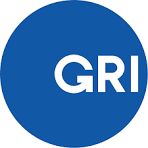
Partners


